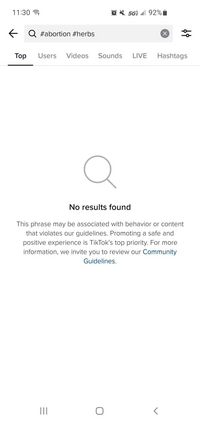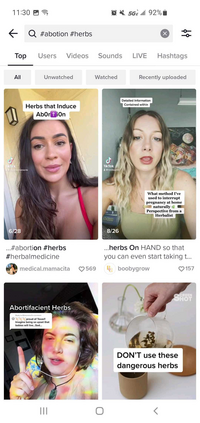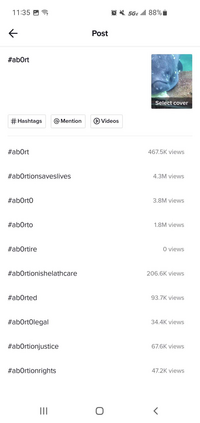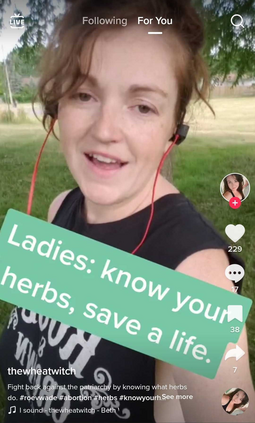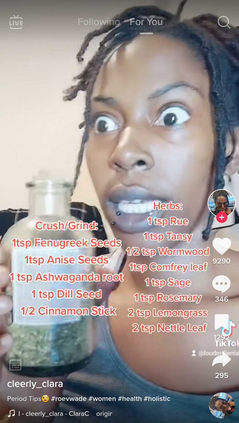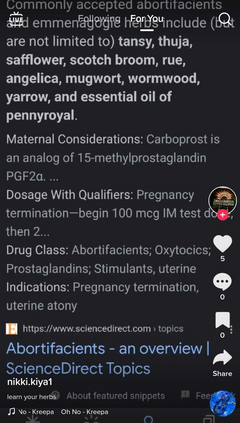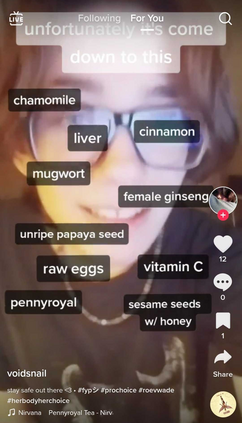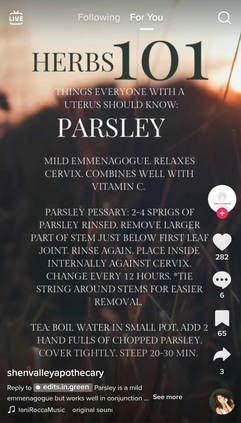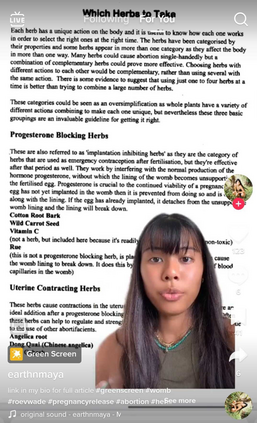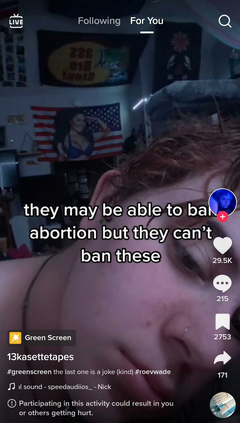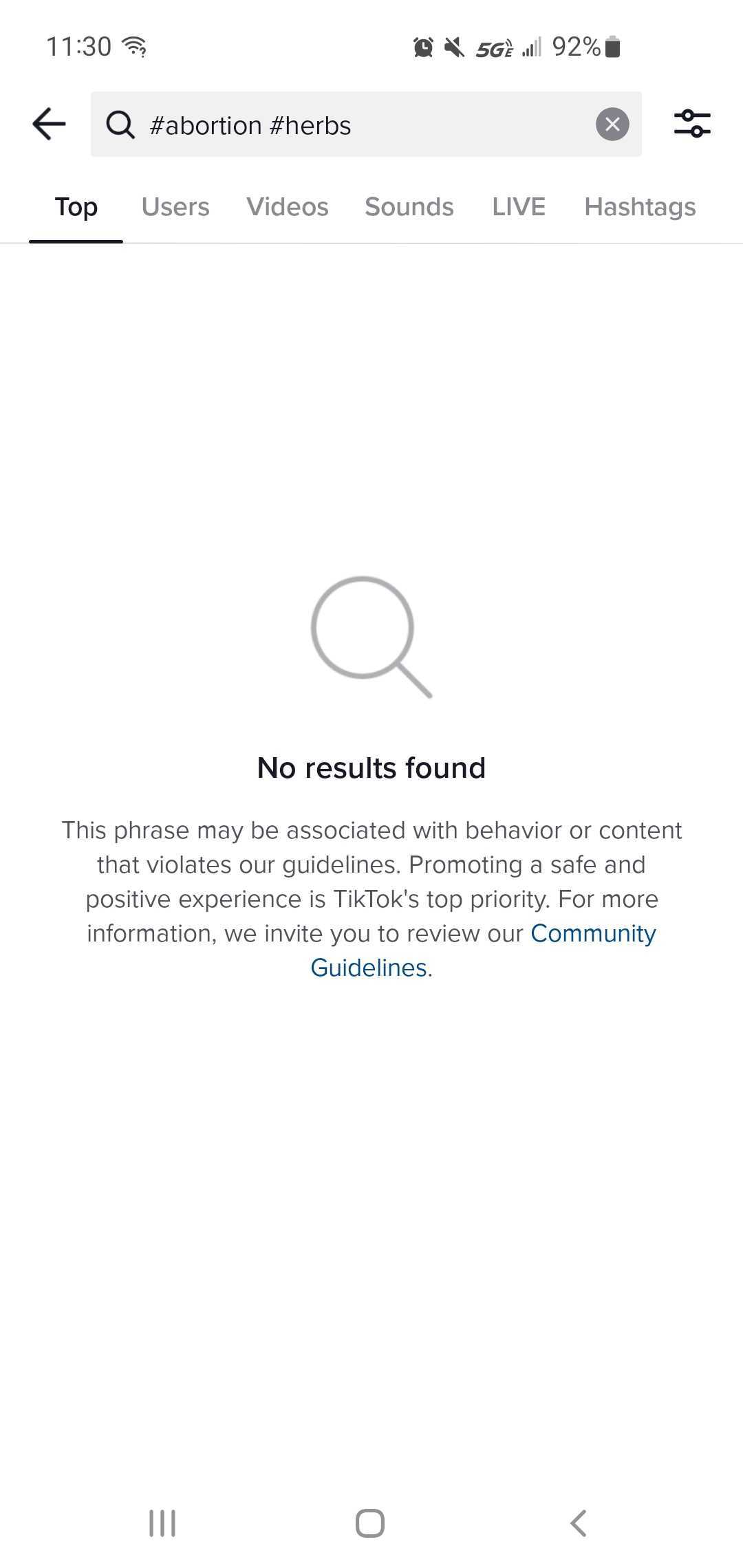The scientific effort devoted to health misinformation mostly focuses on the implications of misleading vaccines and communicable disease claims with respect to public health. However, the proliferation of abortion misinformation following the Supreme Court's decision to overturn Roe v. Wade banning legal abortion in the US highlighted a gap in scientific attention to individual health-related misinformation. To address this gap, we conducted a study with 60 TikTok users to uncover their experiences with abortion misinformation and the way they conceptualize, assess, and respond to misleading video content on this platform. Our findings indicate that users mostly encounter short-term videos suggesting herbal "at-home" remedies for pregnancy termination. While many of the participants were cautious about scientifically debunked "abortion alternatives," roughly 30% of the entire sample believed in their safety and efficacy. Even an explicit debunking label attached to a misleading abortion video about the harms of "at-home" did not help a third of the participants to dismiss a video about self-administering abortion as misinformation. We discuss the implications of our findings for future participation on TikTok and other polarizing topics debated on social media.
翻译:针对健康错误的科学努力主要侧重于误导性疫苗和传染性疾病对公共卫生的影响。然而,在最高法院决定推翻Roe诉Wade在美国禁止合法堕胎的决定之后,堕胎错误信息的扩散凸显了科学关注个人健康错误信息方面的空白。 为了解决这一空白,我们与60 TikTok 用户进行了一项研究,以了解他们在堕胎错误信息方面的经验以及他们如何在这个平台上构思、评估和回应误导性视频内容的方式。我们的调查结果表明,用户大多会遇到短期视频,建议用草药“在家”为终止妊娠提供补救。虽然许多参与者对科学上被击落的“堕胎替代方法”谨慎,但整个样本中大约30%的人相信这些替代方法的安全性和有效性。 即使是在误导性堕胎视频上挂上一个明确的脱钩标签,关于“在家”的伤害,也没有帮助三分之一的参与者将关于自我调节堕胎的视频作为错误信息予以否认。我们的结论对今后参与TikTok 和其他社会媒体上争论的两极化话题的影响。

